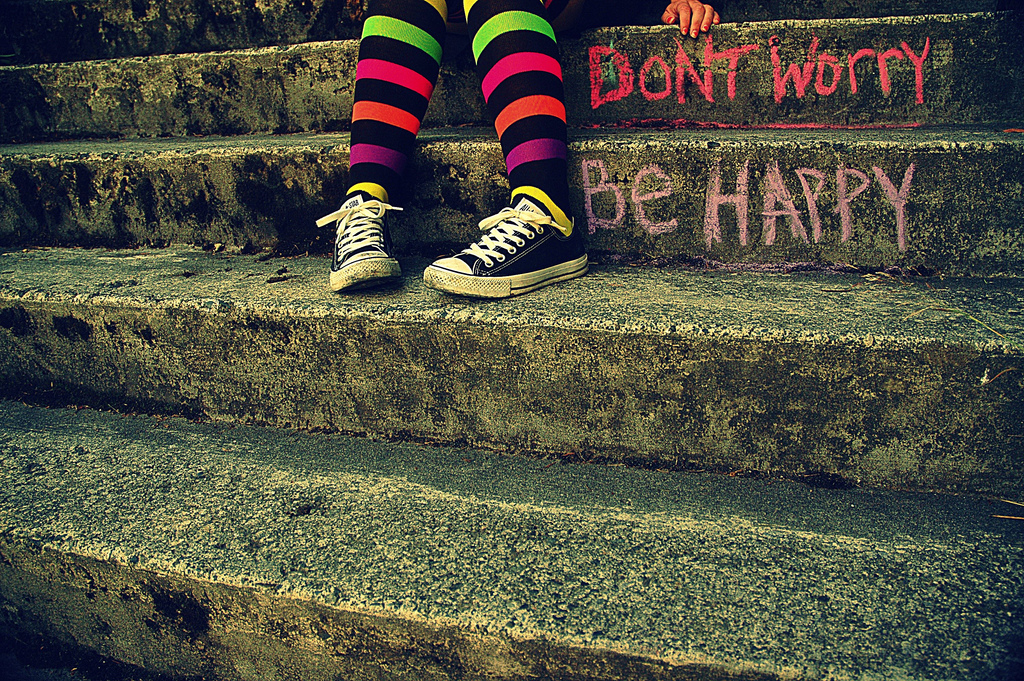My piano teacher at Juilliard used to tell me “don’t worry about it” when I complained about my stage fright. This brilliant and sensitive man who cared very much about me would add, “I’m not worried about you so don’t you worry about you”. Even Bobby McFerrin sang “Don’t Worry, Be Happy”.
How could these people say that? What did they know that I didn’t know?
How do you not worry?
Although I earned two degrees in a very high-pressure institution where competition was fierce, I always struggled with my anxiety when I performed in a concert. I did not talk about my feelings with other students. No one talked about it with me. In my naïveté, I was convinced I was the only person at Juilliard who experienced stage fright. I later found out how wrong that assumption had been.
A number of years after my Juilliard graduation, I set out to discover how to “not worry”. I changed careers to psychology and psychoanalysis in the process of that discovery and self-discovery. I want to share some tips with you that may be useful – although what is helpful for one person may not be for another.
Also as you read these tips, know they are the “tip” of the iceberg, because I discovered performance anxiety is very complex and is about more than the feelings you have about yourself as a performer. You are more than the sum of the parts of your performance.
Also, be aware that these tips do not probe why you have developed performance anxiety. That is a very important piece in solving the mystery and misery of performance anxiety. But I hope these tips will spark you to get to know yourself a little better.
Consider the first three letters of the alphabet, A B C.
A = a recital or a non-musical public performance (speech anxiety, test anxiety, sports anxiety, writers’ block, interview anxiety, social anxiety).
B = what you think or feel or say privately to yourself about the performance.
C = your anxiety level.
Now zoom in on Letter B.
Typical anxious B statements are filled with self-doubt, fears, catastrophizing, and low self-esteem. Here are a few examples: “I am afraid I will mess up on stage”. “I must perform well or I will disappoint my teacher/parents/friends.” “I’m afraid I will forget what I have prepared.” “I will feel humiliated, embarrassed, and ashamed if I make mistakes.” “I will look stupid.” “I am not really good enough to perform – others do it so much easier and better.” “Other people are more talented than I am.”
Notice how you insist you are not good enough or predict that you will be a failure, or compare yourself unfavorably with others. Of course, no one wants to fall apart or feel embarrassed in front of others. It is disappointing and actually devastating to fold under pressure. Try to listen carefully to yourself and hear what you are saying about yourself and to yourself.
The first tip is to recognize your put-downs at Letter B. You cannot knock yourself down and then hope to stand up and perform well. Negative feelings about yourself are not a ticket to performance success.
Try this experiment. Do it several times over several days or weeks.
Sit in a comfortable chair. Take three or four slow deep rhythmic breaths and focus only on your breathing.
Breathe In 2,3, Out 2,3……etc. If intrusive thoughts come into your mind (and they will), let them float away like clouds gently passing by. Notice that you begin to feel calmer; perhaps your fingers feel warmer.
Think about a performance (music, test, speech, athletic,) you where you have been very anxious.
What did you think/feel/say to yourself at Letter B? (Be honest – no one will know what you are thinking but yourself – did you doubt yourself? Feel you must please others? Insist on perfection?)
Rate your anxiety on a scale of 1 (low)……………………10 (high)
Think of some different statements at Letter B – be your own cheerleader!
(Hint: Examples: I cannot make everyone appreciate me no matter how I perform. I will do the best I can because I am prepared. I will focus on what I am doing, not focus on what people may think. If I do not think highly of myself it is likely I will project that same feeling onto others and believe they do not like me. Mistakes do not make me a terrible person. I am sharing what I do with others – I do not have to prove anything. It doesn’t help to compare with anyone else…. we all are different, thank goodness. …. Make up some of your own….
RE-rate your anxiety on a scale of 1 (low)……………… .10 (high)
Is your anxiety lower when you RE-rate yourself (and don’t BE-rate yourself)?
I think my piano teacher told me “not to worry” because he heard the unconstructive things I said about myself when I complained about my performance anxiety. He was showing the confidence in me that he wanted me to feel in myself.
Performing in public is scary. It is not for everyone. If self-help does not help you, it is wise to seek professional help.
The answer I found to managing performance anxiety is that you cannot and should not get rid of it. I discovered if I cannot stop worrying or if helpful tips are not helpful, that professional help is empowering.
Performance anxiety can be transformed into performance energy that carries enormous potential for communication, for self-expression, for enjoyment, and for giving and receiving pleasure that cannot be obtained in any other way.
What are some performance anxiety “tips” that have worked for you?

